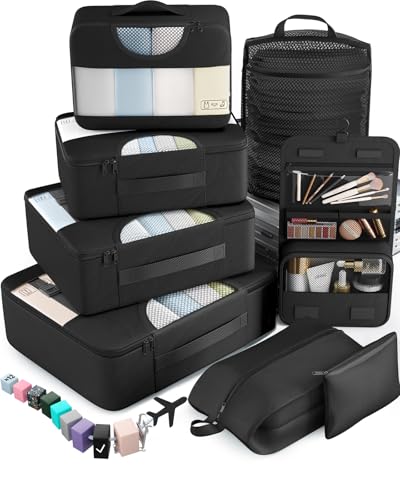In Eritrea, they use Type C and L power plugs and outlets. The voltage is 230V, and the frequency is 50Hz.
⚠️ So, you’ll need a travel adapter in Eritrea. Their plugs and outlets are different from the Type A and B ones we use back in the States.
Quick Overview of the Plugs in Eritrea:
- Plug type in Eritrea: C and L
- Standard voltage: 230V
- Frequency: 50Hz
- Need a travel adapter? Yes, you do need a travel adapter
- Need a voltage converter? It all comes down to your specific device
- Recommended plug adapter: Vintar Universal Travel Adapter Kit
The details provided here come directly from local power authorities, international standards like the IEC, and practical feedback shared by travelers across the globe.
Power Outlets in Eritrea
In Eritrea, they use Type C and L power plugs and outlets.
Type C

Type C outlets have two round prongs and no grounding pin. Type E and F plugs usually fit too, but grounded plugs will need an adapter.
Type L

Type L outlets have three round prongs in a straight line and support different power ratings. Some Type C plugs may also fit.
The Only Travel Adapter You’ll Need in Eritrea
Choosing the wrong travel adapter can fry your devices—or worse, leave you without power. We don’t sell them, but we’ve tested and researched the best option for Eritrea, covering voltage, safety, price, charging speed, and durability. Here’s the best choice:
Recommended Travel Plug Adapter
by 1,000+ travelers on Amazon
No adapter with you and already abroad? You’re not out of options—many airports and local shops sell them. Still, bringing your own is the easiest way to avoid overpaying or ending up with something that barely works.
People visiting Eritrea often continue into Ethiopia, Sudan, and Djibouti. Check what kind of adapters you may need before traveling.
Do You Need a Voltage Converter?
You’ll probably need a voltage converter in Eritrea since your device’s voltage has to match the local power supply. In the U.S., we use 120V, but Eritrea operates on a different voltage, so a converter is required.
Before using your electronics in another country, always check the voltage label to make sure it’s compatible. If it states “100-240V, 50/60 Hz”, your device can handle both 120V and 220-240V without needing a converter. Many modern gadgets, including laptops, tablets, and cameras, support this.

Which Travel Devices May Need a Converter?
Don’t want to guess which converter works? Here are the best-reviewed ones worth checking out.
| Device | Need Converter? | Notes |
|---|---|---|
| Phone | ❌ No (usually) | Most modern phone chargers are dual voltage (100–240V) |
| Laptop | ❌ No (usually) | Check the power brick label for 100–240V |
| Hairdryer | ✅ Yes (often) | High wattage; many models are not dual voltage |
| Electric toothbrush | ⚠️ Check voltage | Some models are 110V only |
| Camera / DSLR | ❌ No (usually) | Most chargers are dual voltage |
| Power bank | ❌ No | Charges via USB, adapter is enough |
| Electric shaver / trimmer | ⚠️ Check voltage | Older or cheaper models may not support 230V |
| Tablet / iPad | ❌ No | All models are dual voltage |
| Portable fan | ✅ Yes (sometimes) | Many models are not compatible with 230V |
| Game console | ⚠️ Check voltage | Newer consoles like PS5 and Xbox are often dual voltage — check to be sure |
| Bluetooth speaker | ❌ No (usually) | Charges via USB |
| E-reader (Kindle, etc.) | ❌ No | USB charging only, no converter needed |
Top Travel Essentials to Pack
From power banks to packing cubes, a few small add-ons can take the hassle out of travel. Here are some favorites.
Digital Luggage Scale
Packing Cubes
Power Bank
No products found.
More About Eritrea
Covering landscapes from highland capitals to scorching Red Sea shores and blistering Danakil deserts, Eritrea fits big country energy into a compact land mass. It’s known as one of the toughest places to visit—most foreigners need advance visas and guided permits—but that barrier keeps crowds low and the experience authentic.
Despite political complexities, traveler reports highlight how safe and welcoming the country feels—streets are calm, locals are eager to chat, and tourism infrastructure (hotels, guides, transport) works smoothly once your paperwork is sorted.
Standout highlights beyond the cities include endless saguaro-like landscapes of the Danakil Depression, the ancient port of Adulis, the Dahlak Islands full of marine life, and rustic local markets in towns like Keren. Eritrea rewards those who take the road less traveled with landscapes and cultures that stay with you.



